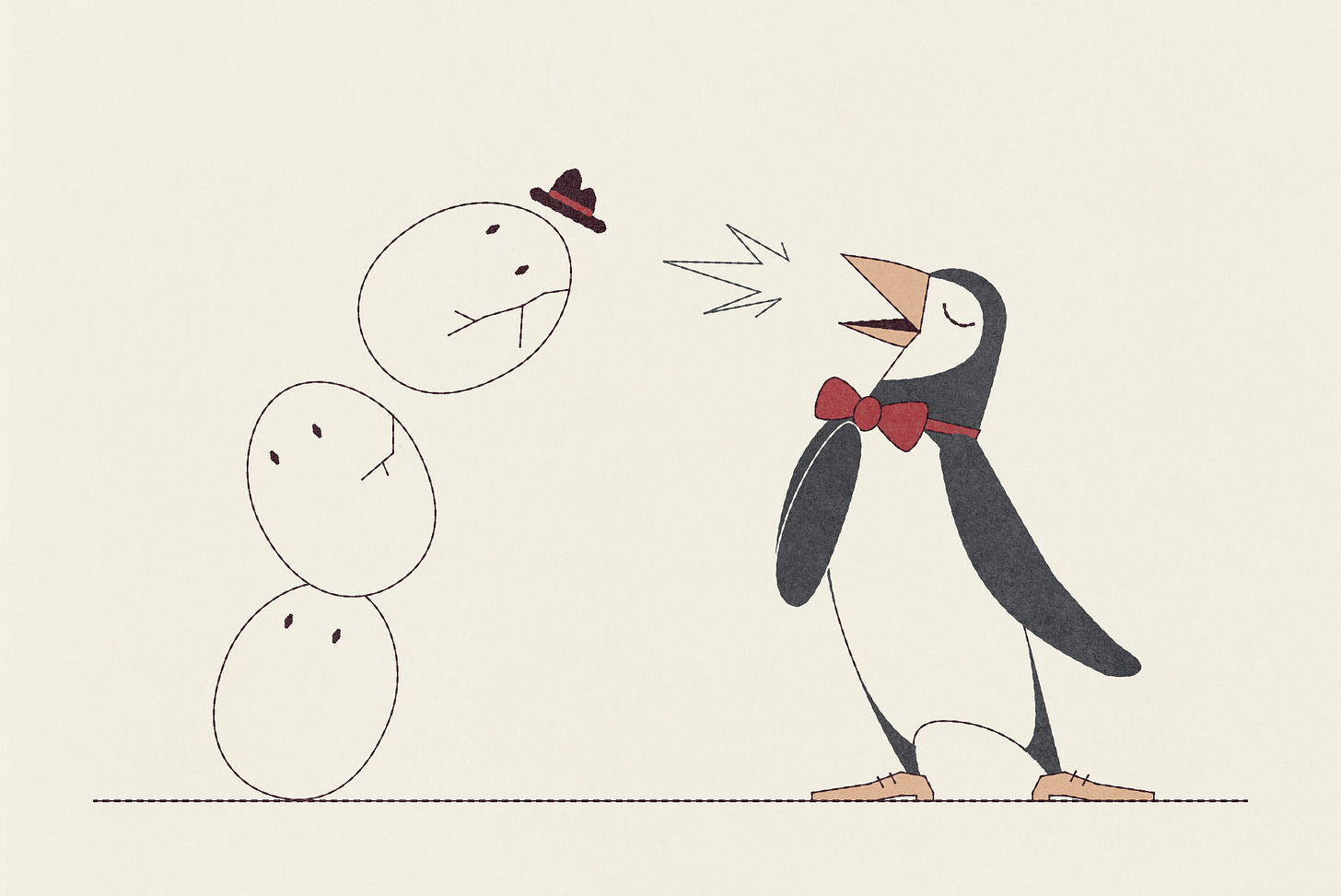It’s amorphous, abstract, and hard to master. And it will take your humor writing from good to amazing. It’s voice.
Lesson 6 - Voice
This is lesson 6 of 8 from Alex Baia’s Forever Workshop “Humor Writers, Get in Here!”
Today we learn:
How to discover and hone your comedic voice
Which aspects of your writing determine the voice within a piece
Author voice vs character or piece voice
How the best humor writers use voice to enhance their pieces
Welcome to lesson 6! The topic du jour is comedic voice.
Voice is a rather abstract concept in humor writing and fiction generally. But it’s so important that it deserves mention as one of the core aspects of humor writing.
I would define voice, quite simply, as what the narrator sounds like. Voice includes the narrator’s emotions, attitudes, perspective, and tone.
You can hear voice clearly in stand-up comedy. Good stand-up comics have a defined voice. Listen to a famous comic of any era: George Carlin, Joan Rivers, Bill Hicks, Dave Chapelle, or any other legend. They all have a comic voice that just sounds funny in a particular way.
The same is true in humor writing: some writing leaps off the page because the comedic voice is so well-rendered. A humor piece with a well-rendered voice is one that perfectly fits and serves the premise. As you read the piece, you can hear the narrator’s voice in your head, and the voice leaps out in a particular and funny way. This is especially true in pieces where the narrator is some kind of interesting or unusual character.
Part of what’s tricky about voice in humor is that its importance varies with the premise. Additionally, voice is multi-layered. It includes both the general writing voice of an author, as well as individual voices that are tied to specific pieces of writing. This can get confusing pretty fast if we’re not careful. So let’s be careful and tease these apart:
Author voice: An author’s individual voice, across their body of work.
Character or piece voice: A particular, sometimes idiosyncratic, voice that a humorist adopts for a particular piece of writing.
When experienced writers tell younger writers to “develop their voice,” they’re typically talking about that first sense: the unique voice you have as a writer. And, of course, I agree that developing your individual writer’s voice is so important in humor writing.
Great humorists hone a funny voice throughout their work. Whether we’re talking Jack Handey, David Sedaris, or Jen Spyra, every professional humorist sounds a certain way. You might say they sound like themselves, or like a comedic version of themselves. Or, you might say they sound like a comedic persona that they’ve cultivated over time. However you define voice, one thing is clear: only David Sedaris sounds like David Sedaris.
But because we’re focusing on the core elements of the humor piece, as an individual piece of prose, I want to focus on the second kind of voice, which I would call “character” or “piece voice.” This is the voice that drives a particular premise.
Not all humor pieces are highly voice driven. But many are. To simplify, let’s say humor pieces fall into one of three categories, voice-wise:





